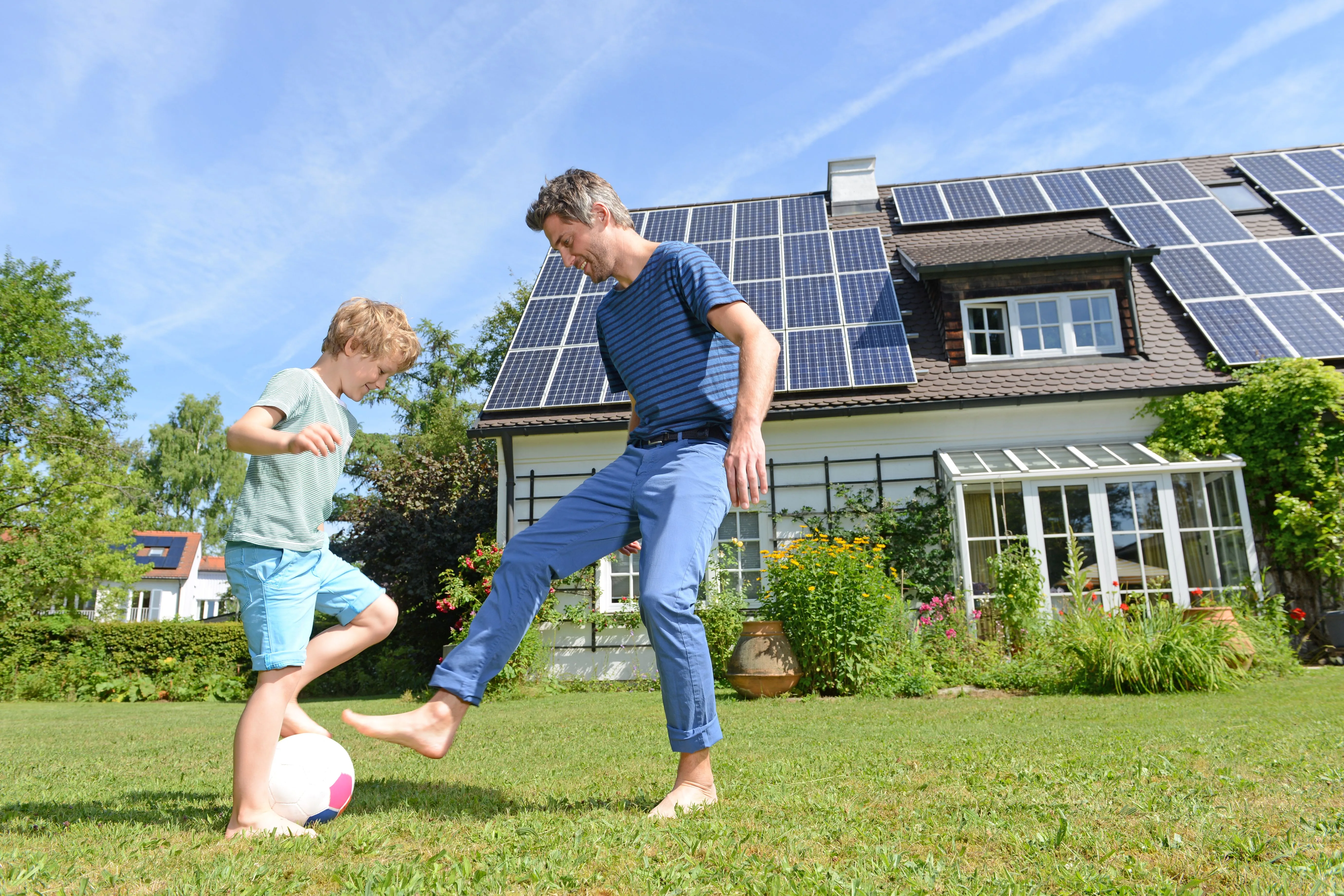Are solar panels worth it for me? Here’s how to check

If you're keen to help Australia transition to renewable energy sources and want to reduce your carbon footprint, a rooftop solar system can be a great place to start. These days, most solar panel installations in Australia will also be accompanied by a home battery system to store excess energy for a rainy day (literally). Batteries can help you make the most of your solar panels — and let you bundle your energy down the track — so it's worth looking at their benefits when considering solar.
What are some questions you might ask if you're trying to decide if a renewable energy system installation is worth it for you?
How long does it take to pay off?
This will depend on a number of things, including the size and quality of the system you choose, how much you spend upfront, if you add on a battery, and whether you finance it with a loan.
If you opt for a green loan to help manage the upfront costs, the payback time will depend on details like the interest rate and how long you have to pay it back. Some lenders offer low-rate green loans which can help you break down the expense without costing you a huge amount of interest over time.
If you choose to pay cash, the time it takes to pay off the system is typically just the time it takes for your energy bill savings to offset the initial cost. This will really just come down to the upfront costs and your energy usage. While it may cost a bit more initially, a home battery can also help reduce your energy bills and help you pay off your installation faster.
There are also a number of federal and state government rebates and incentives that can help lower the upfront costs and speed up the payback period. Always make sure to do your research and consider the benefits and eligibility criteria before applying.
Will I make money off my system?
Many Australians are able to earn money from their solar panel system by feeding excess energy back into the grid — almost as soon as their system is up and running.1
The amount you could earn will depend on your household's energy usage and if you're eligible for a feed-in tariff. A feed-in tariff is the amount you get paid for sending any excess solar energy back into the grid and is determined by either your energy provider or your state government.2 If your household only uses a fraction of the energy generated by your solar panels, you'll be able to see more returns, sooner.
Will I still need to pay an electricity bill?
Most people with a rooftop solar panel system will still pay an electricity bill, but it's generally much lower than previous bills — how much lower will depend on your energy usage.3 However, even if you generate most of your household's energy, you'll still need to pay a basic connection fee to the grid.
An exciting new way to find out your potential energy bill savings is through the SunSPOT calculator*, which is a free and independent resource set up by the University of New South Wales and supported by the Australian Government.4 By entering a few details about your home, household and recent electricity bill into the SunSPOT calculator, you'll receive a suggested solar panel system size, an estimated electricity bill with solar, as well as your electricity bill savings. While this is not a foolproof calculator, it's a great way to get a ballpark figure and could mean you're better prepared to discuss quotes with potential installers.
Are you looking for more a reliable energy supply?
An increasingly important benefit of rooftop solar-battery systems is a more reliable energy supply. By generating and storing your own energy, you're able to reduce your reliance on the grid. Plus your battery is very useful if you hit any unexpected snags like a blackout, or if you are cut off from the grid in the event of severe weather.
Additionally, if you choose to connect your battery to a VPP, you'll not only be supported when you lose energy, but your surplus energy can also help others in need. The great news is VPPs won't always redirect your excess energy — they only redirect it when it's actually needed so you'll still have plenty of energy to power your home. Many VPPs also offer bill credits and other financial benefits which could help you save money on your electricity bill.
Taking all these factors into account and considering which are most important to you will help you determine if a solar panel system is worth it for you.
Plenti has no affiliation with SunSPOT and takes no responsibility for any misrepresentation or any information provided to you by SunSpot.